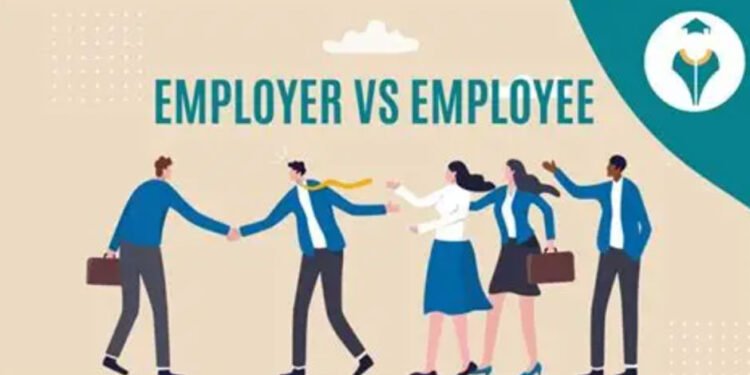These days, everyone can have a fake diploma and make themselves sound like an expert. The truth is that diplomas are everywhere, they are easier to acquire. And as we said, people can make their own fake degree and fool others with skills they might not have. What really matters these days is to have skills and to back them up the best way that you can. Otherwise, most employers won’t care if you’re unskilled, yet you have lots of diplomas.
Why are fake diplomas dangerous for businesses?
Depending on the niche, anything that a person with a fake diploma touched can bring legal problems. Not only that, but many people try to fake diplomas, just to showcase skills they don’t have. And when the time comes to use those skills, you end up with subpar work. The most important thing is to focus on competency rather than diplomas.
As we said, fake diplomas or degrees can lead to workplace risks, reputational harm for your business, not to mention legal and compliance problems. Sure, it’s easy to see a fake diploma and just accept it for what it is. But in the end, the most important thing is to verify the diploma and see whether it’s legit or not. With so many fakes out there, you can never be too careful.
Competency-based hiring sees a huge uptick
It’s clear why that is happening in the first place. Simply put, companies know that they can find lots of people with a fake degree. These are easy to do, but acquiring real skills and competencies is obviously a lot harder. And that’s why companies just focus more and more on finding people with great, provable skills.
Another thing that drives competency-based hiring is remote work. A lot of the time, employers don’t really see these people within the office. So they can only rely on their expertise and skills. That’s why you want to search and see what skills and competences those people have. It just makes a lot more sense to try and focus on their competencies, because that’s what you will receive a result for in the end, so try to take that into consideration.
Moreover, a lack of competency usually leads to fraud and people trying to figure out ways to mislead you. But when someone actively shows their skillset and proves their worth, that’s what will matter the most. It’s very easy these days to just rely on diplomas, but the truth is that you want to avoid all those things. Focus on what people can actively do, and assess their skills.
A very good way of achieving that is to take your time and implement methods as well as tests that highlight skills and knowledge. If you just rely on diplomas, you might end up hiring the wrong people. What you want is to put those skills to the test. Everyone can easily claim they are skilled at a lot of things. But do they really have those skills? That’s why you want to test skills and not just trust anyone.
What kind of skills should you focus on?
Naturally, it depends on the industry and the type of business you have. But most of the time, you want to focus on technical proficiency, problem solving, communication, leadership, critical thinking and collaboration. Of course, you need industry-specific skills as well, those will vary from one workplace to another. But a good combination of these skills is what will help quite a bit, and it will only lead to better results in the future.
Ways to verify skills beyond just a regular diploma
The problem that comers with people using fake diploma or degree situations is they also tend to lie about other things. They might lie about their skillset, certifications, previous workplaces and so on. In verifying people, it makes sense to assess their skills and not just go and see if the diploma is legit or not. Here are some things you can do to verify skills beyond just doing a diploma check:
- You want to check any work samples and portfolios. The idea here is that you want to study past projects, previous work and so on. Those aren’t as easy to fake as a diploma, so that will help back up the skillset of that person.
- Practical interviews also become very popular these days. Instead of just using theoretical stuff, you do want to assign some real-world challenges that prove the person has those skills they claim they do. Whether it’s solving case studies, writing code or preparing presentations, these tasks are incredibly common for practical interviews.
- Enter that person in an internship/apprenticeship position. The idea here is that you want to see how they do in a real-world setting. That way, you will know what you are getting into and whether they are the right fit for the job or not.
- Peer feedback and references matter more than a potentially fake diploma. That’s why you want to check references, access feedback from former colleagues and all that type of info. The more you know, the better it is, especially when you want to hire someone.
A lot of industries are completely focused right now on shifting towards skills. The tech world in particular doesn’t focus as much on degrees, and instead the focus is more on skillsets. The same thing is valid when it comes to marketers, writers, designers and so on. Startups are the same, and you can say that about manufacturing and trades. That way, if you are trying to enter these niches, it makes sense to focus more on acquiring and navigating these skills as you push them to the next level.
Strategies that employers can use
As an employer, it becomes extremely difficult to differentiate people with a fake degree from those that actually got the degree after years of studying. That’s why employers need to use very specific strategies to find the right person they want to hire.
- A good rule of thumb is to combine assessments and verification systems. Testing the real skillset of a person will help you figure out if they are a good pick for you or not.
- Digital credentialing is always helpful, because you can verify the claims of any person. It’s easy to verify whether a diploma or degree is fake or not!
- Structured assessments that help reduce bias can be extremely useful, and they will also provide you with the means to have objective results.
- Another thing you have to consider is to invest in ongoing training. Yes, you hire people for their core skills, but also allow them to learn continually and improve their work as much as possible.
- Emphasizing soft skills is just as important. Aside from hard skills, a good employee also needs to have adaptability, teamwork, communication and other soft skills.
It’s never going to be easy to find the right person for the job. But in a world where fake diplomas are rampant, it makes sense to focus more on real skills. It’s a much better idea to hire using task-based assessments. By implementing these ideas, it will be easier to ensure that you hire the right professionals, with skillsets that bring great value for your business!












